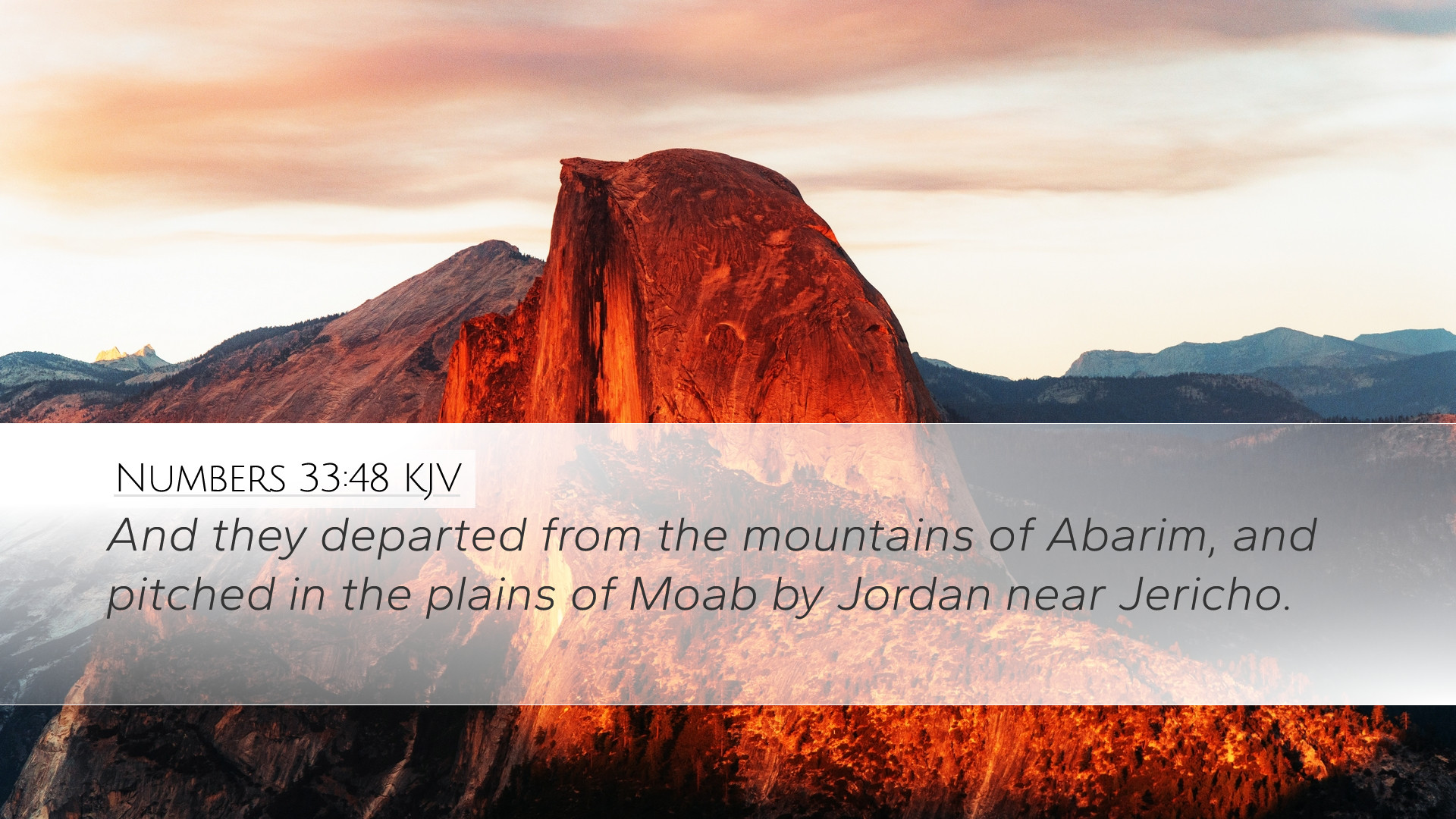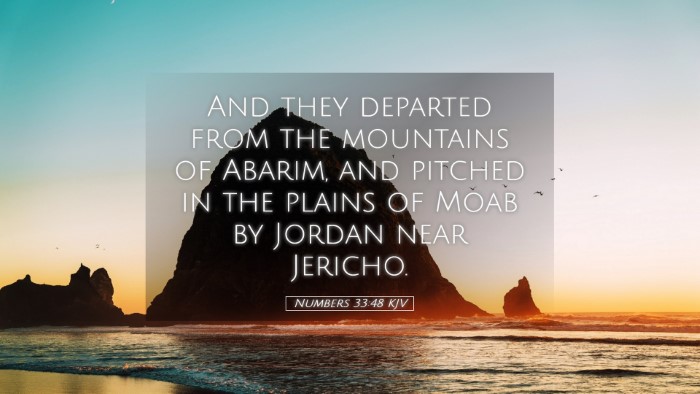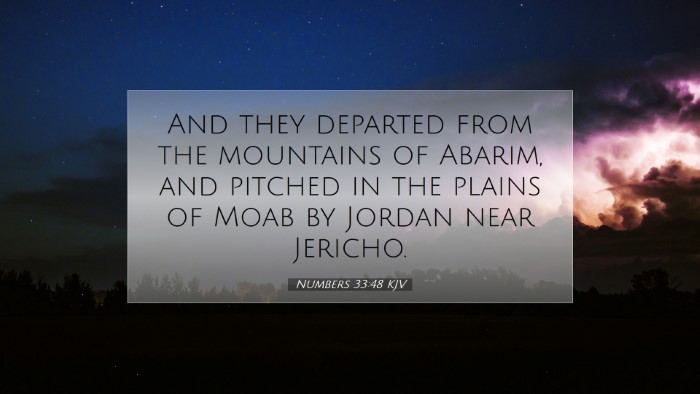Commentary on Numbers 33:48
Numbers 33:48 states, "And they departed from the mountains of Abarim, and pitched in the plains of Moab by Jordan near Jericho." This verse serves as a pivotal moment in the journey of the Israelites as they transition from the wanderings in the wilderness to the entrance into the Promised Land. The insights provided by various public domain commentaries shed light on the significance of this location and the theological implications of this passage.
Contextual Background
The Book of Numbers details the experiences of the Israelites as they traverse the wilderness after their exodus from Egypt. Their journey is laden with trials, divine guidance, and preparations for entering the land promised to them by God. Chapter 33 summarizes their journeys and encampments, providing an itinerary of their travels and illustrating God's faithfulness throughout the process.
Geographical Significance
The mention of the mountains of Abarim and plains of Moab is particularly significant for several reasons:
- Mountains of Abarim: This range, part of the Moabite mountains, represents a crucial transition point for the Israelites. It is a symbol of the end of their desert wanderings and the beginning of a new chapter in their history.
- Plains of Moab: These plains are located near Jordan and Jericho, the Israelites' last stop before crossing into Canaan. This proximity to the Promised Land emphasizes the anticipation and divine promise awaiting fulfillment.
Theological Reflections
This verse encapsulates several theological themes important to pastors, students, and scholars:
- Fulfillment of God's Promises: The journey into the plains of Moab signifies God's steadfastness in fulfilling His covenant with Israel. Throughout their wanderings, God's presence and guidance were evident, as expounded by Albert Barnes, who notes that this moment highlights the approaching fulfillment of the land promise made to Abraham, Isaac, and Jacob.
- Preparation for Possession: As Matthew Henry remarks, the encampment in these plains is more than just a geographical note; it is a divine preparatory stage. The Israelites are now gearing up for taking possession of the land, emphasizing the importance of spiritual readiness and trust in God's provision.
- The Transition from Wandering to Inheritance: Adam Clarke emphasizes that God's guidance has transitioned the Israelites from a state of wandering to one of inheritance. While they once roamed the wilderness, they are now on the verge of entering a land flowing with milk and honey.
Lessons for Leadership and Community
Understanding the significance of this passage extends beyond its historical context. It provides essential lessons for contemporary spiritual leadership and community dynamics:
- Vision and Direction: Like Moses, leaders are tasked with guiding their communities towards divine promises. It is crucial for leaders to seek God’s guidance consistently, ensuring that their direction aligns with divine will.
- Community Preparedness: The Israelites’ encampment serves as a reminder that transition periods are essential for assessment and preparation. Churches and communities should use transitional moments to reflect, congregate, and prepare to embrace God's new unfolding plans.
- Faith in Difficult Times: The journey from the wilderness of Abarim symbolically illustrates the struggles that believers face. Pastors can encourage their congregations to maintain faith and hope as they navigate their individualized journeys towards God's promises.
Historical Reflection
Historically, the plains of Moab were a place of both promise and challenge. It is here that the Israelites, positioned on the brink of entering Canaan, encountered various obstacles, including internal strife and external opposition.
As highlighted in the commentaries, this phase also foreshadowed the battle for the land that awaited them. The context of their encampment becomes pertinent when examining how they prepared to confront the challenges ahead. The historical struggles of their neighboring nations reflect the ongoing spiritual battles that theologians identify within the Christian walk.
Conclusion
Numbers 33:48 serves as a rich verse encapsulating themes of divine promise, preparedness, leadership, and spiritual journey. The journey of the Israelites serves as a metaphor for the Christian life—a journey marked by God's faithfulness, challenges, and the preparation necessary to enter into the fullness of what God has promised.
For pastors and scholars, this passage invites an exploration of God's continuous guidance and the importance of hills and plains in one's spiritual journey. It serves as an exhortation to embrace faith amid transitions and to prepare one's heart for entering God’s promises, just as the Israelites stood on the cusp of their destiny.


